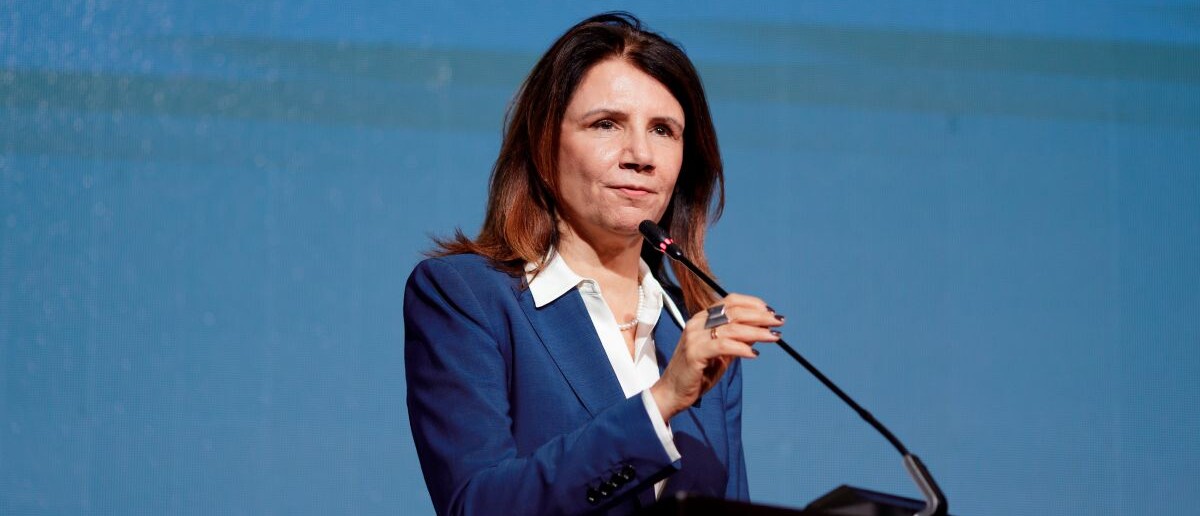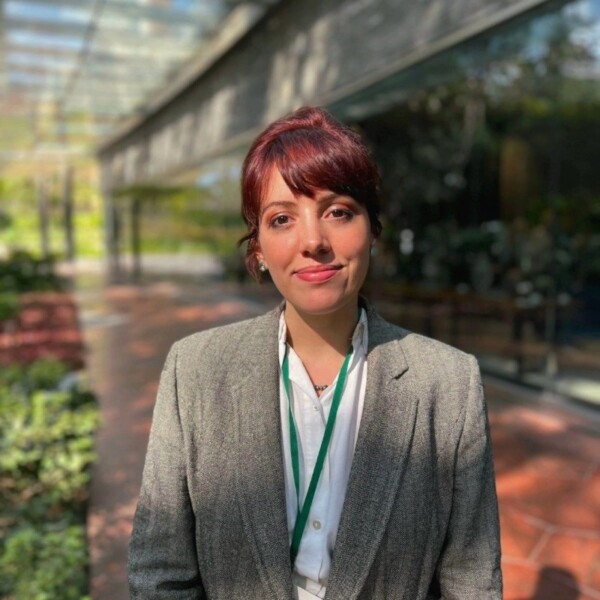
Credit: Isabela Castilho/ COP30 Amazônia
COP30 CEO Ana Toni believes the climate conference in Belém must mark a turning point for implementing climate plans and adapting to a warmer world. Speaking at the launch of the Belém Desk — a new international journalism cohort created by N4C, iCS, TNC, and UNEP — she addressed 150 media professionals about the upcoming conference, emphasizing the role of nature in the presidency’s agenda.
According to Toni, previous conferences finalized the “rulebook” of the Paris Agreement, and COP30 will usher in a new decade focused on accelerating implementation. “Building on the global stocktake from COP28 and its important decisions, we now need to speed up the actions already underway to reach the 1.5 °C target,” she said.
During the online briefing, she also advocated for a ‘basket’ of financing options for nature and adaptation measures, including in the agriculture sector. Read the highlights of her presentation below:
Read more
Related articles for further reading
What is the priority for the COP30 Presidency?
We want to bring this sense of urgency in many ways. First, with a global call for a collective effort (mutirão) against climate change. It’s not enough for negotiators to make progress — everyone must move forward: governments, the private sector, individuals, consumers, voters. Everyone has a role to play.
We don’t need to wait for COP to act. We’ve already sent a letter to the Bonn meeting, urging negotiators to act with urgency. We can’t afford to spend a week just approving an agenda. We need quick decisions.
Implementation has already begun, we are in transition, but climate action needs to scale up, and the emergency demands immediate action. We want to commit mistakes for trying, not for not moving. The responsibility is on all of us and the presidency wants to bring all topics to the table: the global stocktake, financing, and understanding what is blocking acceleration and scaling of actions.
What kind of journalistic coverage can strengthen — or weaken — the ambition of the conference?
I think this will be a different kind of coverage — one focused on implementation — compared to previous editions, which always centered around a major negotiation theme. Of course, there will still be key negotiation topics, such as the $1.3 trillion report that the presidency must deliver, the NDCs synthesis report, and how close — or far — we are from the 1.5 °C target. Adaptation will also be a central theme, as will just transition.
But even more important than covering these topics will be showing what is already happening in the transition. We are not starting from scratch.
The global debate on ending deforestation, for example, which is now on the agenda in so many places, wouldn’t exist without the pressure generated by the COPs and the Paris Agreement. The world would be very different if we had continued with business as usual. That’s why it’s important to show that progress is being made — but it’s not happening fast enough.
If we can’t show that climate action is a lever for prosperity — even if it requires tough choices — COP30 won’t fulfill its role. We need to show the cross-cutting nature of the climate issue and that everyone can contribute. If you’re not part of the solution, you’re part of the problem. And we need to start identifying who is trying, who isn’t succeeding — and why.
Are there plans to advance nature-based solutions as a form of climate adaptation, especially regarding financing?
We believe this COP could be the turning point for the topic of adaptation. Until now, adaptation has always been discussed at COPs, but at a much lower level of relevance compared to mitigation. Mitigation is, of course, fundamental — but today, it’s no longer possible to ignore adaptation. We are already living in a world that has warmed by 1.5 °C.
We want COP30 to bring adaptation to the center of the debate, and connecting it with agriculture and food security will be absolutely essential.
That’s why we hope COP30 will not only finalize the discussion on adaptation indicators — something essential for us to move forward — but also go further: addressing infrastructure and adaptation, risk management, and agricultural adaptation. We will bring all these topics to our action agenda.
Let me also share, that the COP presidency is planning, for the first time, thematic pavilions. We are basing them on the themes of the Global Stocktake, and we hope to set up at least six pavilions to explore in greater depth topics such as energy, industry, nature-based solutions, forests, oceans, cities, and infrastructure. Adaptation will be present in all these pavilions.
What financing mechanisms do you expect to be discussed?
We believe that even though the finance COP was held in Baku — because it was necessary to close the rulebook with the NCQG — financial discussions will undoubtedly be one of the major topics at COP30. Firstly, because we have to deliver the $1.3 trillion report. It’s the first time such a report has been requested from a COP presidency, so we see the debate around resource mobilization deepening. Secondly, we’ll have a very important opportunity to bring together finance ministers to show that there are pathways for these resources to reach the Global South and support developing countries in climate financing. This debate includes topics like the reform of multilateral banks, solidarity taxes, guarantees, among others.
COP30 will also be a unique opportunity to discuss a basket of economic instruments focused on nature and agriculture — such as the TFFF, payments for environmental services, Eco Invest (which is being used for land restoration), carbon markets, the Climate Fund, and the Amazon Fund.
The financing debate has been very focused on the energy sector — which is fundamental — but since this COP is in Brazil, it’s equally essential to talk about financing for nature and agriculture, which have received little attention so far.
What role will private financing play, including concerning the TFFF?
We know it will be decisive. The mobilization of the $1.3 trillion depends heavily on the private sector. And we want to emphasize that private financing must be considered not only for mitigation but also for adaptation.
The private sector is already quite involved in mitigation — and we want more — but in adaptation, there is still a long way to go. For example, with insurance and nature-based solutions focused on adaptation, which are not yet reaching the private sector with enough strength. We need greater involvement on that front as well.
How is the discussion progressing regarding the preservation and adaptation to climate change in biomes beyond the Amazon?
Since this COP will take place in the Amazon, it’s natural that this biome will be in the spotlight — and rightly so. But, when we talk about nature-based solutions, it’s important to recognize that each biome has its own characteristics — and therefore, its own solutions. What works for the Amazon won’t necessarily work for the Pampas or the Cerrado. That’s why we need to create space for all Brazilian biomes, as well as those of other countries, to present their solutions.
Let me also highlight another topic we will strongly promote: the integration of the climate change, biodiversity, and desertification agendas. These three conventions were born together at Rio-92, as “sisters,” but they grew up separately. It’s long past time to bring these agendas closer together. The Brazilian government, in its COP presidency, intends to present concrete proposals for this integration.
